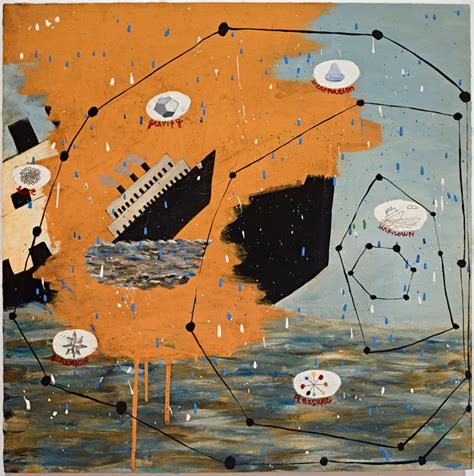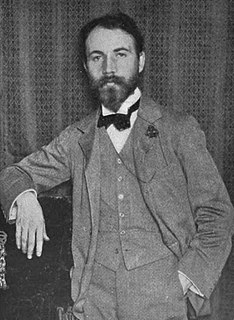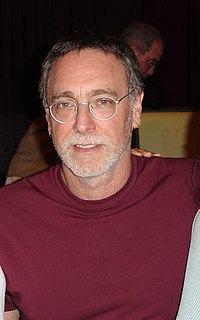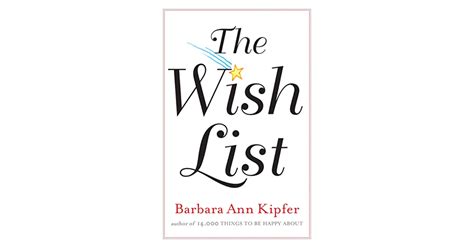A Quote by Squeak Carnwath
The visible is how we orient ourselves. It remains our principal source of information about the world. Painting reminds us of what is absent. What we don't see anymore.
Related Quotes
Occident: The part of the world lying west (or east) of the Orient. It is largely inhabited by Christians, a powerful subtribe of the Hypocrites, whose principal industries are murder and cheating, which they are pleased to call war and commerce. These, also, are the principal industries of the Orient.
Money and prices and markets don't give us exact information about how much our suburbs, freeways, and spandex cost. Instead, everything else is giving us accurate information: our beleaguered air and watersheds, our overworked soils, our decimated inner cities. All of these provide information our prices should be giving us but do not.
In our fibre-optic world of tweets and tablets, we are more conscious of the world around us. The technicolour violence and humanitarian abuses of today are just a flick of a switch away. In our homes, on the train, in our coffee shops, we see it, we feel it, we know about it. All of us. All of the time. Human suffering is visible, constantly.
God reminds us again and again that things between He and us are forever fixed. They are the rendezvous points where God declares to us concretely that the debt has been paid, the ledger put away, and that everything we need, in Christ we already possess. This re-convincing produces humility, because we realize that our needs are fulfilled. We don’t have to worry about ourselves anymore. This in turn frees us to stop looking out for what we think we need and liberates us to love our neighbor by looking out for what they need.
God is dead. God remains dead. And we have killed him. How shall we comfort ourselves, the murderers of all murderers? What was holiest and mightiest of all that the world has yet owned has bled to death under our knives: who will wipe this blood off us? What water is there for us to clean ourselves? What festivals of atonement, what sacred games shall we have to invent? Is not the greatness of this deed too great for us? Must we ourselves not become gods simply to appear worthy of it?
Our process inside the United States government has gotten much better at making sure we touch all possible source of information about a refugee. The interview process has gotten more robust, so we've gotten our act together in that respect. The challenge remains, especially with respect to folks coming from Syria, we're unlikely to have anything in our holdings. That is, with people coming from Iraq, the United States government was there for a very long period of time. We had biometrics, we had source information. We're unlikely to have that kind of picture about someone coming from Syria.
God is dead. God remains dead. And we have killed him. Yet his shadow still looms. How shall we comfort ourselves, the murderers of all murderers? What was holiest and mightiest of all that the world has yet owned has bled to death under our knives; who will wipe this blood off us? What water is there for us to clean ourselves?
Wishing is good for us.
Daydreams, fantasies, castles in the air, and aspirations
All drive us forward,
Impel us to make things happen.
They also tell us a lot about ourselves.
Our wishes come straight from our core,
And they are loaded with vital information
About who we are and who we can become.
Keeping track of our wishes
Helps us tap into the energy
That propels us to go after our happiness.
It is difficult to see ourselves as we are. Sometimes we are fortunate enough to have good friends, lovers or others who will do us the good service of telling us the truth about ourselves. When we don't, we can so easily delude ourselves, lose a sense of truth about ourselves, and our conscience loses power and purpose. Mostly, we tell ourselves what we would like to hear. We lose our way.
It is easy to imagine fantasy as physical and myth as real. We do it almost every moment. We do this as we dream, as we think, and as we cope with the world about us. But these worlds of fantasy that we form into the solid things around us are the source of our discontent. They inspire our search to find ourselves.
































